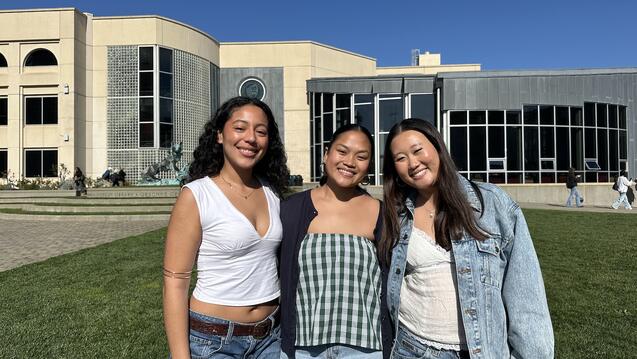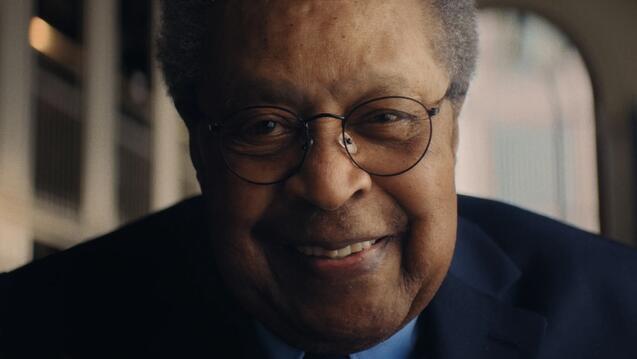Bench Talk: Alumni Highlight Careers on the California Supreme Court
Associate Justices Ming Chin '67 (retired) and Martin J. Jenkins '80 both had unconventional paths to the Supreme Court of California.
Last week, Chin, who was an Associate Justice from 1996 to 2020, and Jenkins, who was appointed to replace Chin in 2020, joined the USF Law community for a virtual fireside chat highlighting their careers from USF Law to the state’s highest court. The program was moderated by fellow California Supreme Court Associate Justice Carol A. Corrigan.
Jenkins, whose parents were part of the Great Migration of African Americans from the American South, originally considered a career in the National Football League before a coach pushed him into law. And Chin, a child of Chinese immigrants, grew up on a potato farm in Oregon before a local judge took him under his wing and taught him about the impact of the law.
For both judges, it was strong mentors and a constant curiosity about the world that helped push them onto the path to the bench.
“Mentorship is important because many times what you’re able to see is really based on where you stand,” Jenkins says. “You need someone to elevate you so you can see more than where you stand.”
In her introduction, Dean Susan Freiwald described Chin and Jenkins as two of the “most renowned and beloved members” of the USF Law alumni community.
“I speak for the entire USF Law community when I express the utmost pride in the accomplishments of Justices Ming Chin and Martin Jenkins,” Freiwald said at the event. “They have inspired us not just by their brilliance, their leadership and their character, but also by the generosity they have shown to our community."
Thriving through a Jesuit Education
A double Don, Chin served as a Captain in the U.S. Army before becoming a deputy district attorney with Alameda County, then an Alameda County Superior Court judge, and following that, the Presiding Justice of the First District Court of Appeal in San Francisco. He was named USF Law’s Alumnus of the Year in 1993.
Jenkins, who worked as an attorney with Pacific Bell, became a trial judge in the Alameda County Superior Court, then served as a federal district judge for the Northern District of California, and following that, as an Associate Justice on the California Court of Appeal.
Early life experiences taught both men the value of dedication and hard work. Although Chin’s parents lacked formal education, they always emphasized the importance of schooling for their children.
“Working on that farm was so hard that it was a relief to go to school,” Chin says. “My parents had a method to their madness.”
And both men were inspired to pursue legal careers by their time spent with the Jesuits.
“The Jesuits doubled down on the values that my parents taught me, which were respect for diversity, inclusion in all of its stripes, culturally and spiritually as well,” Jenkins said. “Also, the value of public service, being a man for others.”
And Chin noted that the Jesuits’ philosophical perspective “took a farm boy from Oregon and (turned) him into a scholar of the classics,” through an education that always seemed to work as a conversation with history.
“When I became an appellate judge, I thought I was really talking to my predecessors through these opinions. You work their knowledge and intelligence into the opinion. I felt that the entire Jesuit education was helpful throughout my judicial career. I was always grateful to the legal education I received at USF.”
For Jenkins, his favorite part of the role as a state Supreme Court justice is Wednesday conferences, a process he likens to jazz musicians creating riffs on the fly, in which the court comes together and decides which cases to review.
As for students who might be considering careers on the bench, both men highlighted intellectual curiosity as a foundational principle for young lawyers, with Jenkins describing it as not being “wooden in the idea that you know what you’re going to do for 60 years.”
“Develop a sense of values that are important to you,” Jenkins says. “Those values will be your north star as you navigate your legal career, and even in times of turbulence, they’ll lead you safely home.”


